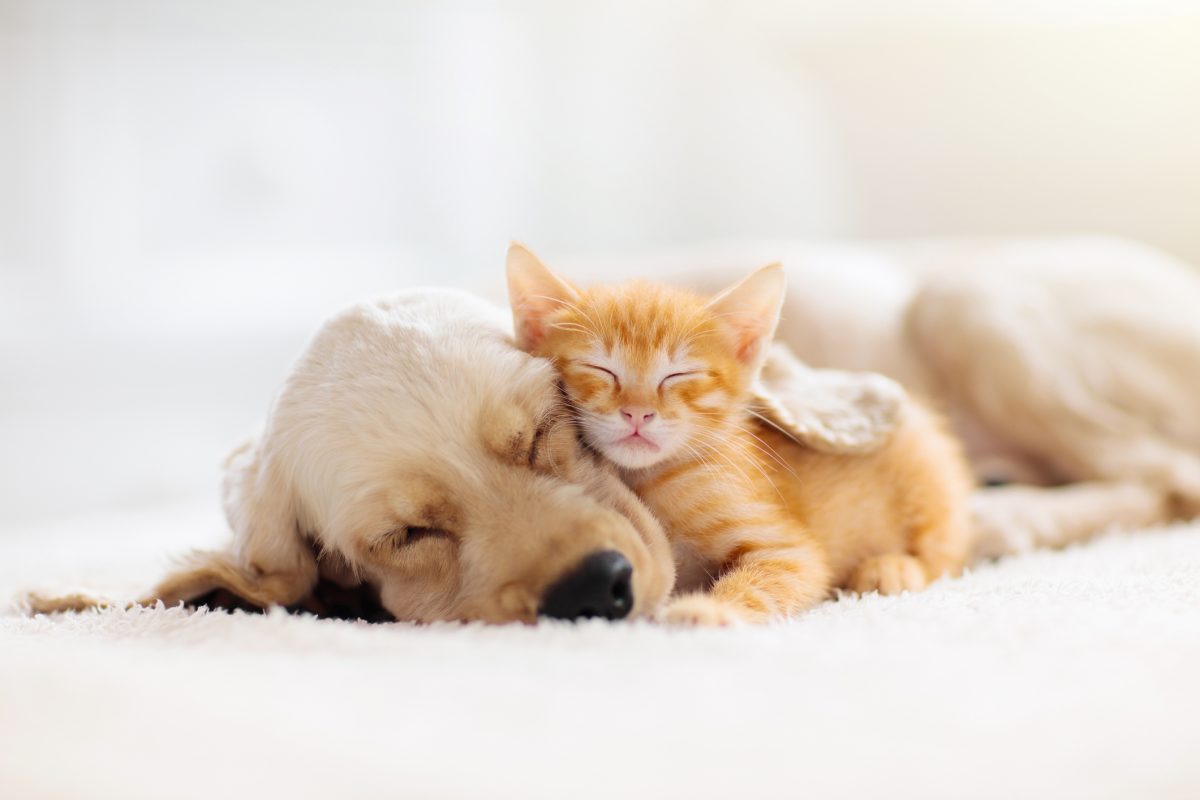Like with children, there are a number of things in and around your home that can spell danger for your pet. Some of the most common issues for pets in the home is ingesting small items or dangerous items, including plants. Here are a few of the top household dangers for your pet:
- Medications (OTC and RX)
- Household cleaners
- Batteries
- Insecticides
- Antifreeze
- Plant food/fertilizers
- Rat poison
- Razors or sharp objects
- Exposed electrical cords
- String or tooth floss
- Rubberbands
- Tobacco
- Mothballs
- Corded blinds
- Plants
The most dangerous room in your home for your pets is the kitchen where they can get into the trash and into cabinets with toxic cleaners and supplies, broken glass and food waste that could be hazardous to their health. If possible, it’s best to keep your pet out of the kitchen with an installed baby gate to avoid these dangers. Also keep cords from blinds up away from your pet’s reach and keep electrical cords secured behind furniture or up off the floor. If your pet does try to chew electrical cords, using a taste deterrent such as Bitter Apple Spray should help.
A Special Note About Plants and Your Pet
Household plants can present a particular hazard to your pet. Many pets chew and ingest pieces of household plants. There are many plants that are toxic to your pet such as yew, lilies, tulips, marijuana, oleander, rhododendron, azalea, castor bean, English ivy, autumn crocus, chrysanthemum, peace lilies, cyclamen, kalanchoe, pothos, amaryllis and sago plants/palms. While all can cause significant illness, kidney or liver failure and other serious medical issues for your pet, of particular concern are sago plants/palms.
Sago palms are highly toxic to both dogs and cats, particularly the seeds/nuts but all parts of this plant can be deadly. These plants are very common in South Carolina both outdoors and indoors. The main toxin in these plants, cycasin, can cause increased drooling, vomiting, diarrhea, bloody gums, blood in stools, bloody noses, blood clotting issues, lethargy, muscle tremors, circling, paralysis, seizures, coma, liver failure and death. For the health and safety of your pet, it’s best not to take chances with this plant and avoid having sago palms in your home or yard. Other names for the sago palm include coontie palm, cycades or cardboard palm.
Pets are a part of our families and it’s important to protect them from dangers in our homes. Some dangers are easier than others to protect them from. For example, avoiding having poisonous plants in your home is easy. Keeping them away from electrical cords can be tougher but having an awareness of the dangers in your home can go a long way in protecting your precious furry family member.






